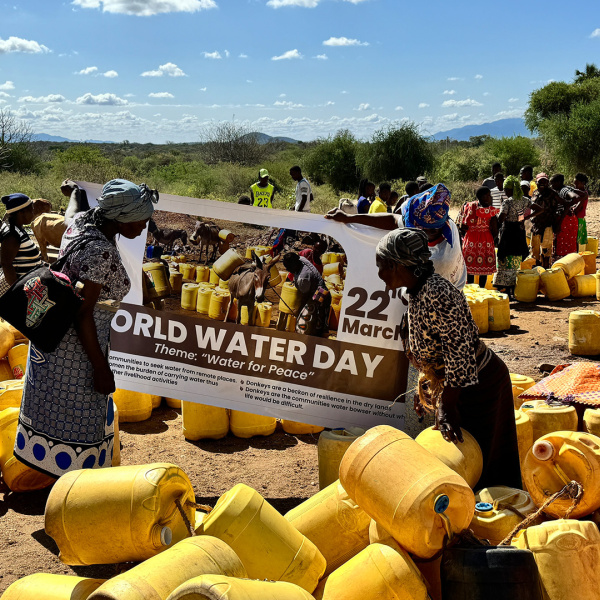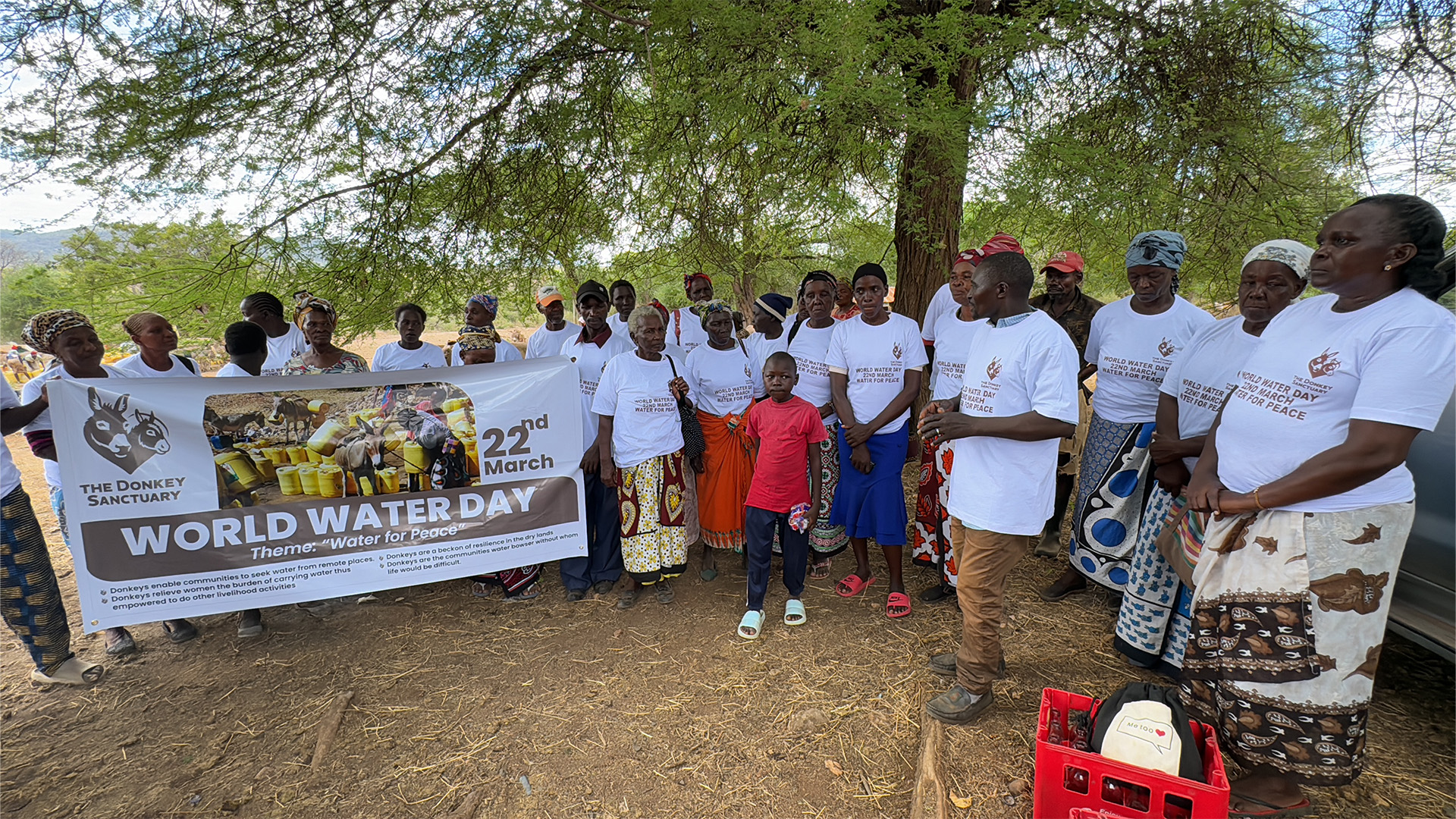On World Water Day (22 March), The Donkey Sanctuary held an event in the village of Nuu, Kenya to raise awareness of the huge impact of working donkeys on female empowerment in rural parts of the country.
In areas where access to clean water is often a challenge, donkeys play a pivotal role in transforming communities. Globally, a staggering 200 million hours are reportedly lost by women and girls collecting water every day.
In many parts of rural Kenya, women and girls are traditionally tasked with the strenuous responsibility of fetching water, often walking long distances multiple times a day (1). This not only consumes a significant portion of their time but also limits their opportunities for education, work and personal development. However, by recognising the value of working donkeys and improving their welfare, this narrative can begin to change.
These hardworking animals are relied upon to transport water from distant sources to households, reducing the burden on women who would otherwise have to carry heavy loads over long distances.
Donkeys’ strength and resilience make them well suited to Nuu’s challenging dry terrains. Their contribution enhances water accessibility, improves overall community wellbeing and fosters harmony between communities who unite around the fair and sustainable use of water – which ties in with the theme of this year’s World Water Day: ‘Water for Peace’.
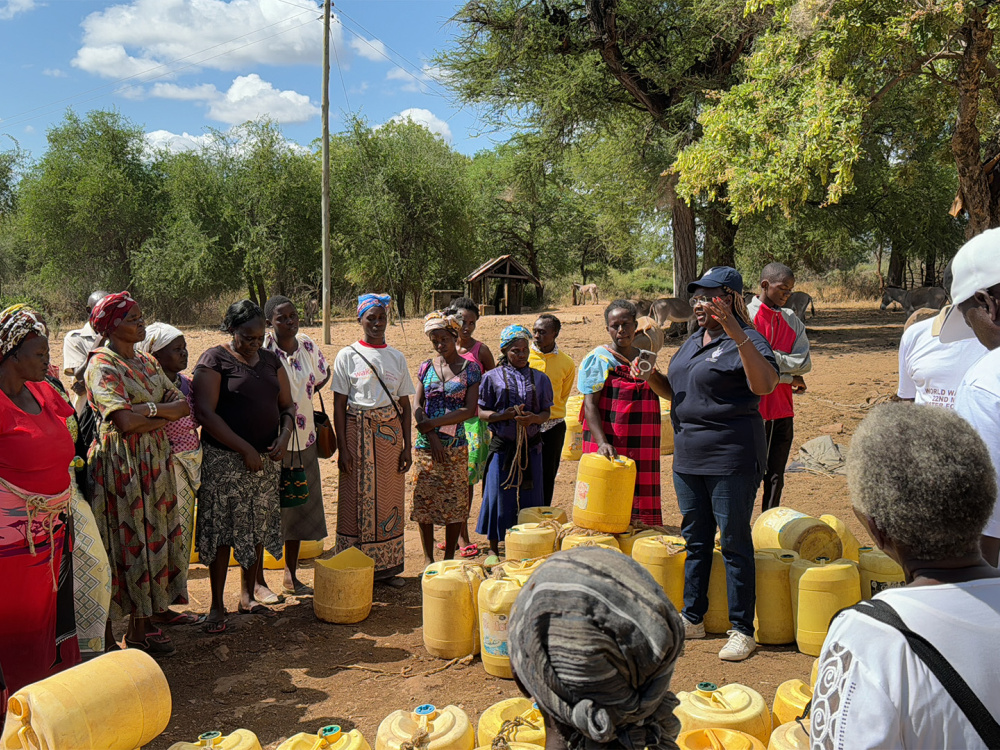
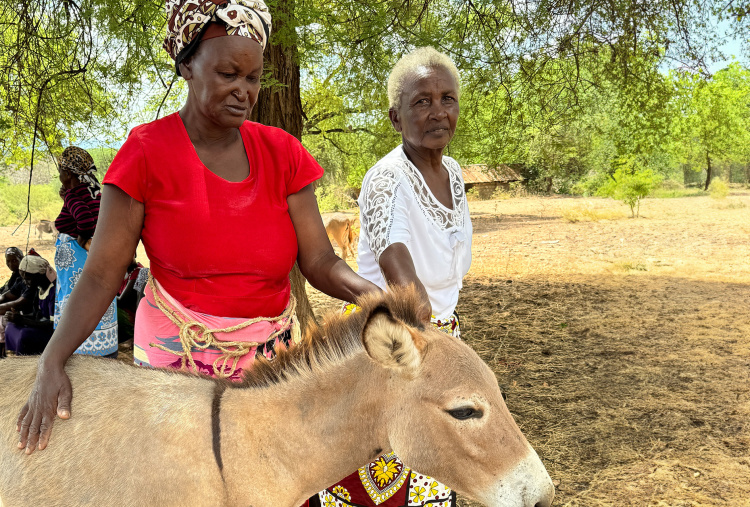
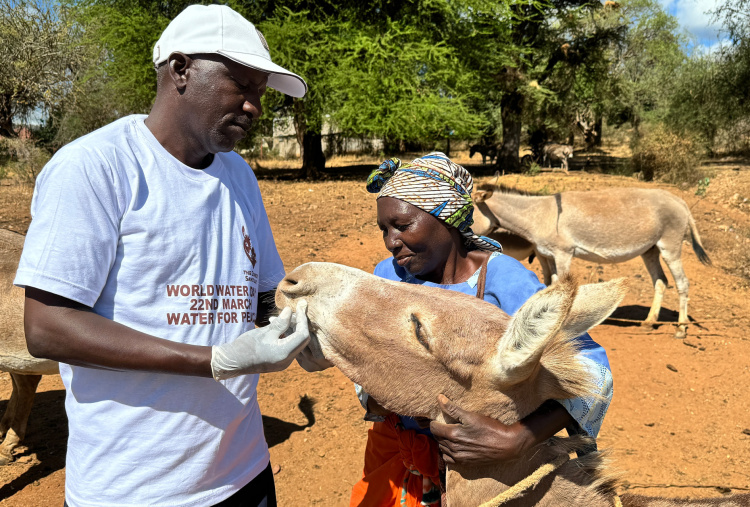
Supporting Nuu’s women and donkeys
As part of the event, 378 donkeys in Nuu were given free health checks, with our Kenya team providing veterinary treatment to those animals who needed it, in collaboration with local animal health service providers.
A small gathering was also held within the area, where banners were used to highlight the value of donkeys in water availability. Melchisedek Muluka, County Ward Administrator, was the guest of honour and took the time to explain the importance of donkeys as a lifeline for the community and encouraged everyone to consider the welfare of their donkeys.
Here, he was joined by several women from the community, who explained how donkeys are the reason they can retrieve water and that without them life would be impossible. They highlighted how donkeys allow them to source adequate water to use in their homes, which in turn allows them to have a peaceful co-existence in the communities.
Beth, a leader of the Nuu women's group, said: “Donkeys are very beneficial to women. Apart from transporting water for our use at home, we are able to earn some income by also selling water to those who don’t have donkeys especially in the town centres. This income helps us to put food in the table, send children to school and even build or repair our homes.”
Spreading the word
The field event was a huge success with the team being joined by four media outlets who covered the activities throughout the day and shared the event through various channels. We estimate that this media coverage reached over a million people, allowing us to showcase that donkeys are a symbol of water access to many rural communities, especially in the vast dry lands where water is generally scarce and women are traditionally tasked with the responsibility of fetching it.
The World Water Day event also set in motion a range of programmes that will continue to increase the value of donkeys. It also provided an insight into the welfare challenges faced by donkeys while supporting communities in these dry rural lands.
Solomon Onyango, our Country Director at The Donkey Sanctuary Kenya, said: “Access to safe water, sanitation and hygiene is a basic need for the health and wellbeing of both humans and donkeys. There are over 3,000 working donkeys in Nuu, many of whom make a daily round trip of up to 9km, carrying 80kg of water on their backs. However, like many of the country’s 1.2 million donkeys, their critical role is often overlooked, and their welfare is not prioritised.
“We know when working donkeys are poorly fed, overworked or suffer illness and disease, they cannot achieve their productive potential and it is not only the donkey who suffers but the whole community.
“During this year's World Water Day, we provided free health checks and veterinary services for Nuu’s working donkeys and offered advice to owners on how best to care for their donkeys. It means that these wonderful animals can continue to reduce the physical burden on women, enabling them to collect more water in less time, allowing for increased productivity in other aspects of their lives.”
References
(1) UNICEF, 29 August 2016 UNICEF: Collecting water is often a colossal waste of time for women and girls
Learn more about our work in Africa
Find out how we are helping improve donkey welfare across the continent
